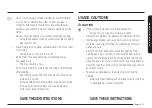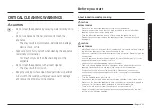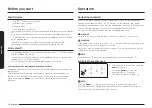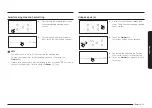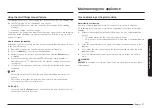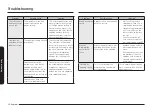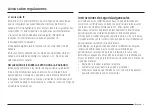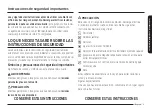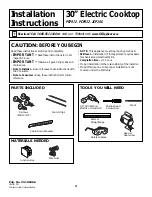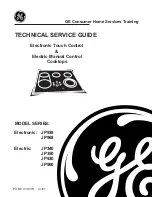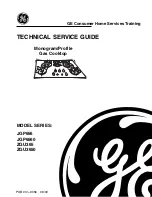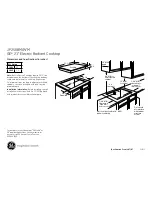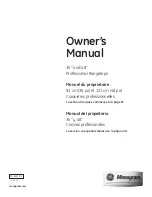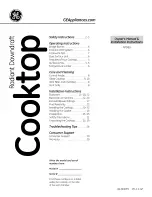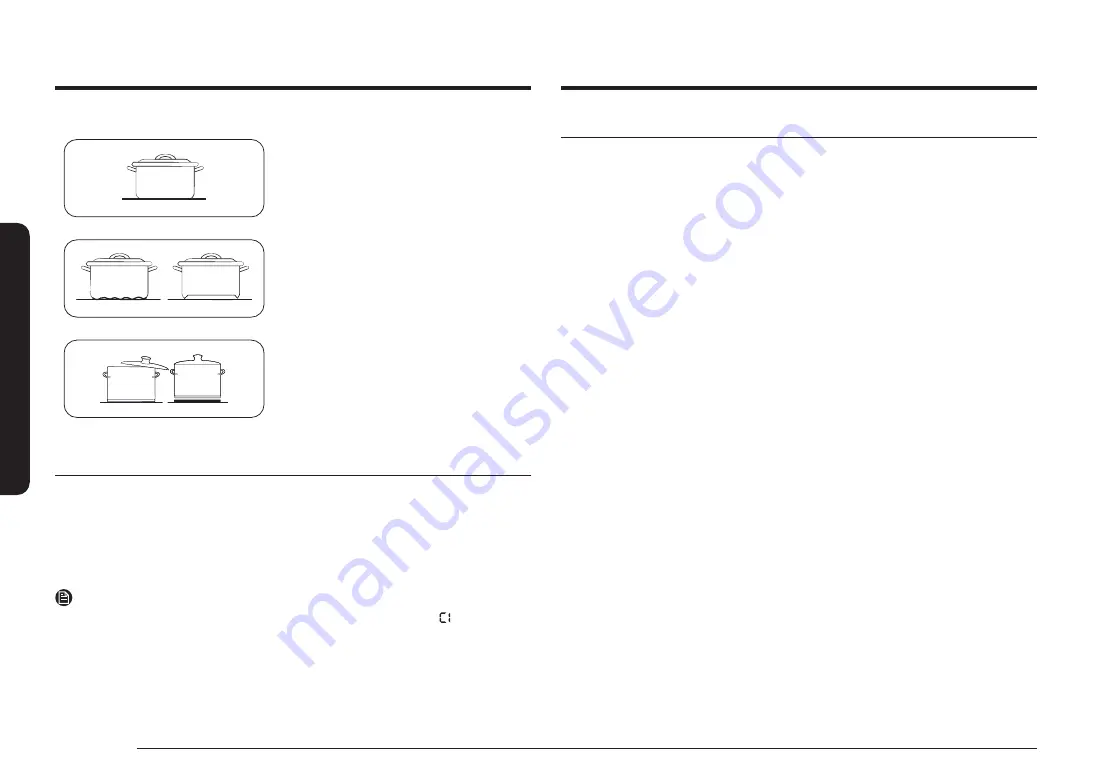
26 English
Oper
ation
Operation
Energy saving tips
You can save valuable energy by observing
the following points:
•
Always position pots and pans before
switching on the cooking zone.
•
Dirty cooking zones and pan bases
increase power consumption.
•
When possible, position lids firmly on
pots and pans so that the lids cover
them completely.
•
Switch the cooking zones off before the
end of the cooking time and use the
residual heat to keep food warm.
Right!
Wrong!
Wrong!
Temperature detection
If for any reason the temperatures on any of the cooking zones exceeds the safety
level, then the cooking zone will automatically reduce the heat to a lower power
level.
When you have finished using the cooktop, the cooling fan will continue to run
until the cooktop’s electronics have cooled down. The cooling fan switches itself on
and off depending upon the temperature of the electronics.
NOTE
If the induction cooktop overheats because of abnormal operation, will be
displayed and the induction cooktop will turn off.
Protecting the cooktop surface
Cleaning
•
Clean the cooktop before using it for the first time.
•
Clean your cooktop daily or after each use. This will keep your cooktop
looking good and can prevent damage.
•
If a spillover occurs while you are cooking, immediately clean the spill while
it is hot to prevent a tough cleaning chore later. Using extreme care, wipe the
spill with a clean, dry towel.
•
Do not allow spills to remain on the cooking area or the cooktop trim for a
long period of time.
•
Do not
use abrasive cleansing powders or scouring pads, which will scratch
the cooktop.
•
Do not
use chlorine bleach, ammonia, or other cleansers not specifically
recommended for use on a glass-ceramic surface.
Preventing marks and scratches
•
Do not use glass cookware. It may scratch the cooktop.
•
Do not
place a trivet or wok ring between the cooktop and a pan or wok.
These items can mark or scratch the cooktop.
•
Make sure the cooktop and the pan bottom are clean.
•
Do not
slide metal pans across the cooktop.
Preventing stains
•
Do not
use a soiled dish cloth or sponge to clean the cooktop surface. A film
will remain, which may cause stains on the cooking surface after the area is
heated.
•
Continuously cooking on a soiled surface can result in a permanent stain.
Preventing other damage
•
Do not allow plastic, sugar, or foods with high sugar content to melt onto the
hot cooktop. Should this happen, clean immediately.
•
Do not let a pan boil dry as this will damage the cooktop and the pan.
•
Do not
use the cooktop as a work surface or cutting board.
•
Do not
cook food directly on the cooktop. Always use the proper cookware.


